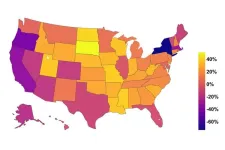With CA$105.7 million in funding, including $49 million from the Canadian government and the engagement of industry, academia, government and patient advocacy groups, Conscience seeks to lead global drug discovery and development for emerging, rare or complex diseases and ensure these drugs are affordable and equitably available to all.
“Drug discovery has focused on diseases with large patient pools and big profit potential. We have a different approach to medical breakthroughs,” said Ryan Merkley, the new Chief Executive Officer of Conscience. “We’re turning the discovery of new medicines into a team sport. The market’s failures don’t have to be our failures. Together, we can develop artificial intelligence (AI) solutions and use open collaboration strategies to solve for diseases few others are paying attention to.”
“Today’s investment will accelerate medicines research and development efforts by leveraging Canadian strengths in artificial intelligence and employing open science principles to drive efficiencies toward building Canadian innovation capacity, while delivering the medicines that Canadians need,” said the Honourable François-Philippe Champagne, Minister of Innovation, Science and Industry. “The COVID-19 pandemic highlighted how important it is to maintain and grow a vibrant and innovative life and science ecosystem. This is why our government is proud to support the Conscience-led Network as part of our continued commitment to building a strong and resilient sector that will protect Canadians’ health and safety for generations to come.”
“I’m proud to announce this critical project that will connect a vast community of experts to accelerate the identification of promising drug candidates, support pandemic preparedness and boost Canada’s biomedical sector by building on its talented resources and creating rewarding jobs,” said Ryan Turnbull, Parliamentary Secretary to the Minister of Innovation, Science and Industry and member of Parliament for Whitby.
Conscience was established by the Structural Genomics Consortium (SGC), a leading open science organization with a 20-year track record of bringing together industry, academia and leading innovators from around the world to solve challenges through collaborative approaches. Conscience is led by a board and staff with a proven track record in drug development, scientific research and innovation, and open science.
Leveraging open science and artificial intelligence (AI)
“Medical breakthroughs aren’t random,” said Anke Mueller-Fahrnow, Chair of the Board of Conscience and former head of Lead Discovery Berlin within Bayer AG. “They take enormous amounts of time, effort and money. Ironically, they are also hugely inefficient. We can drive down the cost of drug discovery and development and ultimately the cost of drugs through harnessing collaboration and the power of AI.”
Open science first gained global attention with the mapping of the human genome. It is based on close collaboration and data sharing among researchers, academics and industry, increasing efficiency and reducing excessive costs and wasteful duplication, especially those associated with exclusive patents.
In addition to open science, artificial intelligence has enormous potential for drug discovery. But this potential remains limited by a paucity of high-quality data that can be used to train AI for drug discovery and the lack of a mechanism to compare emerging methods. Moreover, all predictions must then be tested in labs to provide feedback to the AI algorithms.
“It took one trillion lines of text scraped off the internet to create ChatGPT, and it still is riddled with errors,” said Merkley. “The only way to use AI effectively for drug discovery is for all companies and researchers to pull together to create high quality data and make those data available to all. That’s why we call drug discovery a ‘team sport’.”
A unique Conscience program is already building the foundations to analyze this shared data set. The CACHE Challenge hosts open AI competitions to identify potential drugs for a particular disease. They are tested at the University of Toronto to identify the best candidates and then both the raw data and the successful predictions are publicly released.
Initially operated by the Structural Genomics Consortium at the University of Toronto, but now operated by Conscience, the first challenge is well underway and is focused on an under-researched area of Parkinson’s disease.
“The beauty of this competition is that in the end, we all win. In addition to new discoveries, all of the data generated are shared, and can be used to further AI drug discovery,” said Leah Cowen, Vice-President, Research and Innovation, and Strategic Initiatives, at the University of Toronto. “We look forward to collaborating with Conscience to catalyze a new era of drug discovery through CACHE Challenges.”
Three upcoming challenges are planned: two for COVID therapeutics and one for a rare form of childhood cancer.
Ryan Merkley to Lead Conscience
As CEO of Conscience, Ryan Merkley returns to steward a Canada-based organization, applying 20 years of leadership in technology and the public good, open science and collaboration. Merkley spent the last decade working in public interest technology and on public policy issues, including those related to AI and intellectual property.
While serving as Managing Director of Aspen Digital at the Aspen Institute, Merkley navigated complex technology issues on AI, intellectual property and open source, and information integrity. As Chief of Staff at the Wikimedia Foundation and CEO of Creative Commons, he was an international leader building open and collaborative community networks.
Previously, Merkley served as Director of Corporate Communications for the City of Vancouver for the 2010 Winter Games and was a Senior Advisor to Mayor David Miller in Toronto, where he initiated Toronto’s Open Data project.
Merkley says that the call to participate in Conscience is open to partners, funders and innovators from all sectors — both medical researchers and AI developers.
“By embracing open science, AI and collaboration, Conscience is shaping a future where critical medical breakthroughs leave no person behind,” he said.
###
To learn more, visit https://www.conscience.ca
END




